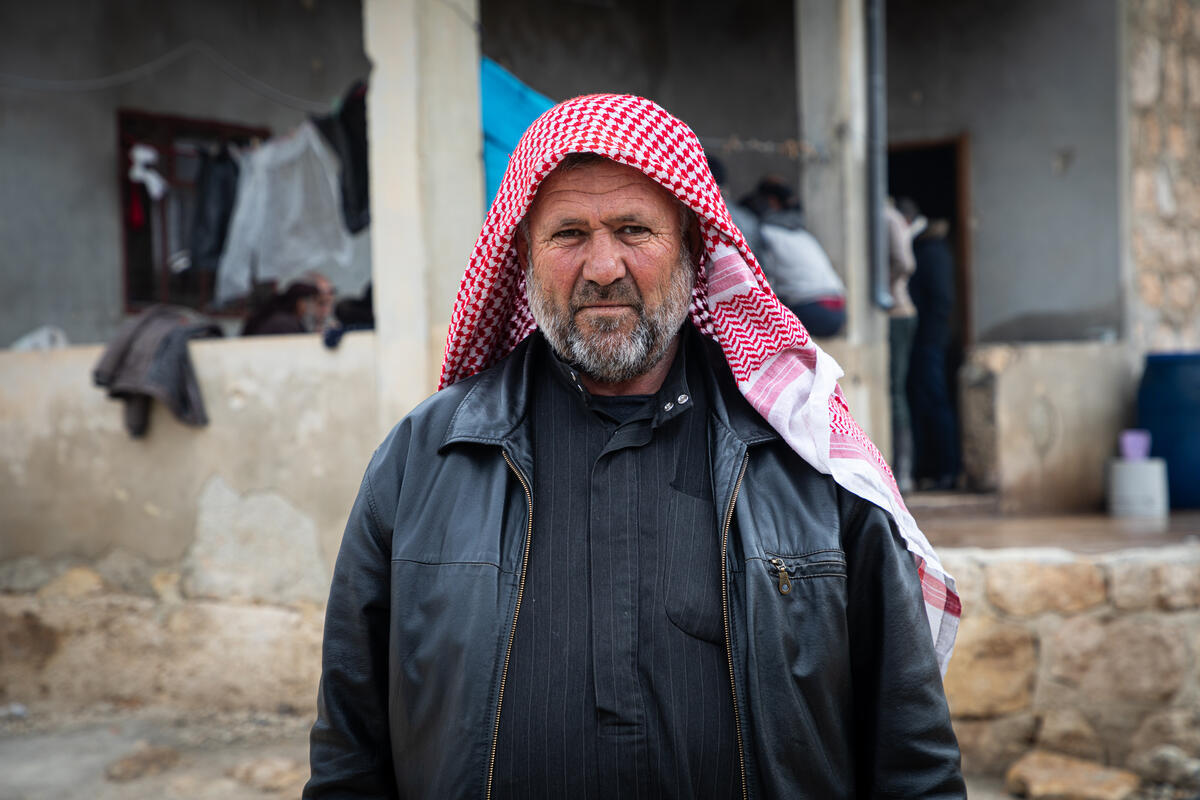Durable solutions required for Syrian refugees in Jordan as Za'atari camp turns 10
Durable solutions required for Syrian refugees in Jordan as Za'atari camp turns 10

UNHCR, the UN Refugee Agency, this week marked the 10th anniversary of Za’atari camp in Jordan, the temporary home to 80,000 Syrian refugees.
While the camp has saved thousands of lives and created economic opportunities for Jordanians and Syrians alike, the Agency stressed the need for durable solutions for refugees.
Jordan now hosts some 675,000 registered refugees from Syria, who began fleeing in 2011 when the crisis in their country brought unimaginable suffering on its citizens. Most Syrian refugees in Jordan live in its towns and villages, among local communities. Only 17 per cent live in the two main refugee camps, Za’atari and Azraq.
Humanitarian support for refugees in Za’atari is spearheaded by the Jordanian government and UNHCR, with almost 1,200 staff from 32 different international and Jordanian organizations working in the camp. This humanitarian assistance would not have been possible without support from the international community.
Za’atari has witnessed refugee entrepreneurship from day one. Determined to get back on their feet, refugees have set up almost 1,800 shops and businesses within the camp.
From cell phone stores to restaurants, bridal shops to mechanics, these businesses employ an estimated 3,600 refugees. But they do not operate in isolation. Refugee entrepreneurs regularly engage with companies and clients in the nearby city of Mafraq and contribute to the Jordanian economy and host society.
After 10 years, however, a whole generation of children has grown up without seeing anything beyond the camp’s perimeter. The camp has become their world. Over 20,000 births have been recorded in Za’atari camp since its opening.
The camp is now home to 32 schools, 58 community centres, and eight health facilities that operate alongside civil defence and community police. In addition to co-managing the camp with the authorities, UNHCR and its partners provide protection, health and cash assistance to the women, men, and children in the camp.
Over the past decade, UNHCR, in coordination with partners, has provided over 25,000 caravans as shelters and each month administers approximately 25,000 medical consultations. Every quarter, UNHCR provides cash assistance to all families living in the camp. These investments have allowed camp residents to flourish.
However, UNHCR is concerned about the sustainability of the camp, which began as a temporary facility. The caravans, which replaced tents in 2013, have a normal life span of six to eight years meaning most of them are now in need of urgent repair.
In 2021 alone, over 7,000 refugees requested support for maintenance as roofs and windows cracked and walls warped, leaving some residents exposed to the elements. According to a recent UNHCR’s Vulnerability Assessment Framework 2022, 70 per cent of wall conditions in Za’atari are considered sub-standard.
Electricity is another area of concern. While a solar plant was opened to power the camp in 2017, its capacity was only able to meet the needs of all residents for 11.5 hours a day. In recent months, as electricity demand increased for summer, UNHCR has had to reduce this to nine hours of power per day to be able to cope with the additional electricity costs incurred, as the solar plant does not provide for all the needs.
In addition, economic shocks – from COVID-19 and now the cost of living crisis – challenge the resilience of camp residents and vulnerable Jordanians alike. Two thirds of refugee families in Za’atari camp say they are in debt and 92 per cent of families reported resorting to negative coping strategies such as reducing food intake or accepting high-risk jobs. These numbers have been going up at a worrying pace.
The compounded effect of these shocks threatens to undermine the achievements of the past decade. On the 10-year anniversary of Za’atari camp in Jordan, UNHCR calls for the renewed commitment of all actors – development agencies, Jordanian authorities and humanitarians.
With no immediate solution to the conflict in sight and humanitarian conditions deteriorating at a worrying pace, all actors need to work together to find long-term solutions for all Syrian refugees in Jordan and beyond, and to support their resilience until such solutions are found.
For more information on this topic, please contact:
- In Amman, Roland Schönbauer, schoenb@unhcr.org, +962 79 119 2532
- In Amman (regional), Rula Amin, aminr@unhcr.org +962 79 004 5849
- In Geneva, Mathew Saltmarsh, saltmars@unhcr.org +41799679936








